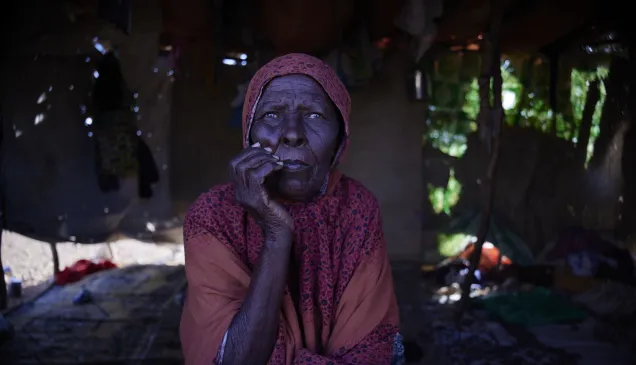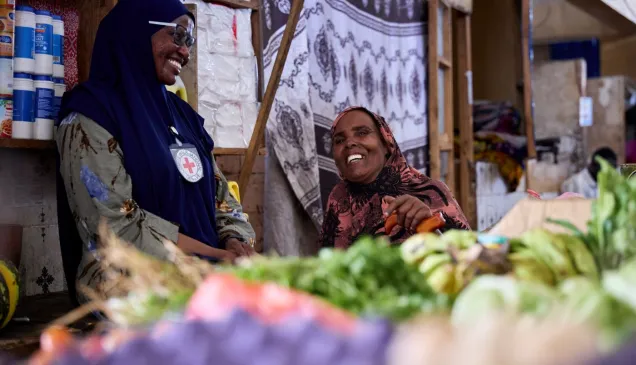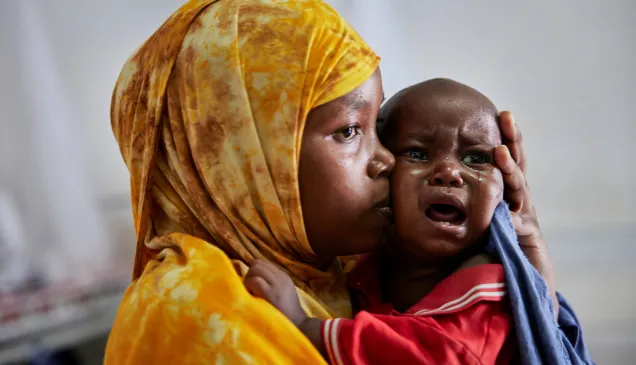Somalia is the most severely affected of the countries facing the ongoing drought in the Horn of Africa. The situation is alarming, and it is deteriorating. People are massively abandoning their homes in search for water and food. Crops fail, water levels are depleted, and livestock is lost.
By the beginning of March 2022, over 670,000 people were displaced as the consequence of the drought. The most affected central and southern regions of Somalia also are bearing the brunt of the ongoing, protracted conflict and violence while remaining largely inaccessible for humanitarian actors.
"There is nothing but hunger where I came from. People are hungry. There's no rain. We left in search of medical assistance but there is only hunger," says Fadumo Ali Mohamed, who has been displaced from her home in Jamame.
ICRC teams on the ground witness heart-wrenching situations. They see people moving from their villages and hear reports about women and children dying on the way. They witness people in camps for internally displaced people living day after day, wearing the same clothes, collecting anything they find to eat and hoping for survival.
"I left Digwariir on foot, travelled two days to reach Janaale Lower Shabele. There, I got a lift to Mogadishu, Daynile Samarey IDP camp. Now, being here, I still have no proper shelter, no food or even clothes for my kids. We sometimes get food from the neighbors, living near the camp", says Hamdi Yare Hussein, a widowed 25-year-old mother of four.
The ICRC has started implementing its drought emergency response action, focusing on conflict-affected, hard-to-reach areas.
"While access to certain areas is still pending, our teams are already assessing needs, registering beneficiaries and distributing cash assistance across priority districts in South, Central, Mogadishu and North Somalia. Nutritional screening has been strengthened and several boreholes 'quick fixes' are underway in various priority zones, reaching out to over 68,000 beneficiaries," says Juerg Eglin, the ICRC's head of delegation in Somalia, who added "We are aware of the conflict-related constrains and risks and we will be thoroughly assessing them, all the while striving to respond in a timely and efficient manner to the needs of people caught in the conflict."
As the drought continues to cause displacement and may exacerbate existing conflicts and aggravate vulnerabilities, the ICRC will continue to strengthen its protection response, including its efforts to reunite separated families in Somalia in partnership with the Somalia Red Crescent Society, which has branches across the country.
The ICRC is progressively increasing its response in several phases, starting in places where we have access to the conflict-affected communities. With additional budgetary assistance, we plan to expand assistance to those who are in a critical condition and in need of extra urgent help.
For further information, please contact:
Sanela Bajrambasic, ICRC Somalia, +254 700 888 131
Follow the ICRC on facebook.com/icrc and twitter.com/icrc



